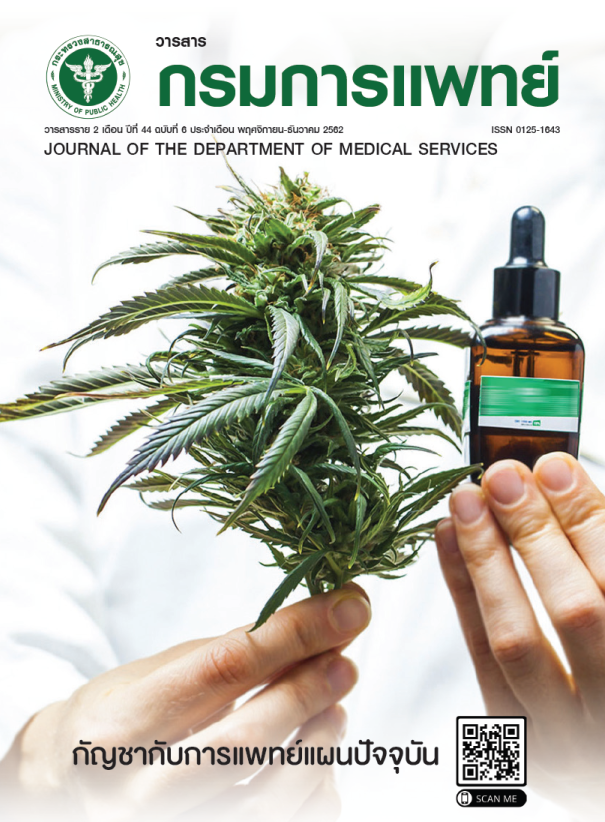Different Social Support among Drug Addicts in Voluntary System and Compulsory System
Keywords:
Social support, Drug rehabilitation, Voluntary system, Compulsory systemAbstract
This descriptive research aims to study the differences in social support between voluntarily and compulsory rehabilitation systems of drug dependent persons. This sample comprised 181 voluntarily rehabilitation systems of drug dependent persons of the Princess Mother National Institute on Drug Abuse treatment (PMNIDAT), Department of Medical Services, Ministry of Public Health, and 152 compulsory rehabilitation systems of drug dependent persons of the drug dependent persons Rehabilitation Center, Department of Probation, Ministry of Justice. Analysis was done by Chi-Square test and Multiple logistic regression. The results of the study showed that the scores of social support of drug addicts in voluntary rehabilitation system were statistically significantly higher than those compulsory rehabilitation systems (p <0.05). It was found that those who received rehabilitation in voluntary systems had more social support than that compulsory rehabilitation 1.98 times. However, there were not significant difference in social support of age level, gender, marital status, occupation, income, reasons of using drugs, parental material status, and presence of other addict persons in family. The drugs dependent persons in voluntary system have more social support if they intent to quit drug, it is easier. Qualitative research should be conducted to know the details of the problems and the causes that affect social support. We should encourage the family to participate in the treatment of drug dependent persons seriously. The approach may be the knowledge of living together after leaving the treatment facility or helping to solve family problems etc.
References
United Nations Office on Drugs and Crime. 2012. from:https://www.unodc.org/unodc/en/data-and-analysis/WDR-2012.html.
Driving Drug Reform Policy Reform. from: http://www.globalcommissionondrugs.org/wp-content/uploads/2017/03/GCDP-Report-2016_THAI.pdf.
Office of the Narcotics Control Board. (2011) School Based Prevention Program. Bangkok:
Princess Mother National Institute on Drug Treatment. Annual Report. 2011.. from: http://www.pmnidat.go.th/thai/index.php?option=com_content&task=category§ionid= 2&id=9&Itemid=53
Brandt PA, Weinert C. The PRQ--a social support measure. Nurs Res1981; 30:277-80.
Callaghan P, Morrissey J. Social support and health: a review. J Adv Nurs1993; 18: 203-10.
Weiss RW. The provisions of social relationships. In: Robin Z (ed.), Doing unto others. Engle Wood Cliffs’ NJ: Prentice-Hall; 1974.
Sri sa-ard B. Introduction to Research. 9th ed. Bangkok: Suweeriyasan; 2011.
Intajakr N, Pinitsoontorn S. Incentive for using illicit drugs amongt patients treated in Thanyarak Hospital. Udon Thani: Khonkaen University; 2017.
Denduandboripant N. Social support of methamphetamine users treating as in-patients at Thanyarak Institute, Chulalongkorn University; 2011.
Downloads
Published
How to Cite
Issue
Section
License
บทความที่ได้รับการตีพิมพ์เป็นลิขสิทธิ์ของกรมการแพทย์ กระทรวงสาธารณสุข
ข้อความและข้อคิดเห็นต่างๆ เป็นของผู้เขียนบทความ ไม่ใช่ความเห็นของกองบรรณาธิการหรือของวารสารกรมการแพทย์



